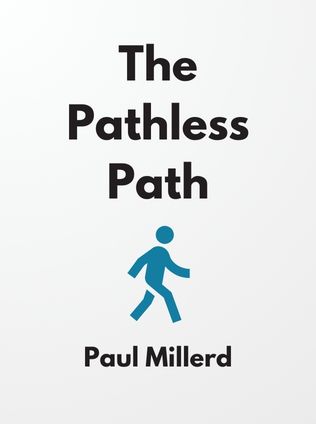
The Pathless Path
Imagining a New Story For Work and Life
By Paul Millerd
Published 01/2022
About the Author
Paul Millerd is a modern-day philosopher of work, who started his career in the traditional corporate world, following the well-trodden path of many before him. He attended a top business school, worked in prestigious consulting firms, and lived what many would consider a successful life. However, despite the external markers of success, Paul found himself feeling unfulfilled and yearning for something different. His journey led him to question the very nature of work and success, and ultimately to a new path: one of freelancing, creativity, and redefining what it means to live a meaningful life.
In "The Pathless Path," Millerd shares his experiences, insights, and the lessons he learned along the way, offering readers a guide to breaking free from conventional expectations and embracing a life of authenticity and purpose.
Main Idea
The central theme of "The Pathless Path" is the exploration of an alternative approach to life and work, one that deviates from the traditional, success-driven career trajectory that many are conditioned to follow. Millerd challenges the societal norms that equate work with identity and success, advocating instead for a life where personal fulfillment, creativity, and relationships take precedence over the relentless pursuit of career advancement.
Millerd's message is clear: the traditional path is not the only way. By embracing uncertainty, questioning conventional wisdom, and prioritizing what truly matters, we can carve out a more meaningful and satisfying existence. The book serves as both a memoir of Millerd's own journey and a practical guide for those looking to embark on their own "pathless path."
Table of Contents
- The History of Prioritizing Work
- Millerd’s Shift in Priorities
- How to Deprioritize Work
- The Alternative to Prioritizing Work: Freelancing
- Adjusting to the New Lifestyle
- Finding Your Niche and Flourishing
The History of Prioritizing Work
Millerd begins by exploring the historical context that has led to the modern obsession with work. He traces the roots of this mindset back to the Protestant Reformation, where figures like Martin Luther and John Calvin promoted the idea that hard work was not just necessary for survival, but a divine calling. This notion, as Max Weber explains in "The Protestant Ethic and The Spirit of Capitalism," laid the foundation for a cultural shift in which work became central to one's identity and purpose.
"The idea that work is the ultimate path to fulfillment has deep historical roots, but it is not the only path available to us." – Paul Millerd
Millerd further explains how post-World War II economic changes in the United States solidified this work-centric culture. The economic boom allowed many to achieve unprecedented wealth and stability through full-time industrial jobs, creating the expectation that a successful life is built on continuous, stable employment. However, Millerd argues that this model is outdated and no longer fits the realities of the modern world, where job security is no longer guaranteed and the traditional work ethic often leads to burnout and dissatisfaction.
Sign up for FREE and get access to 1,400+ books summaries.
You May Also Like
The Subtle Art of Not Giving a F*ck
A Counterintuitive Approach to Living a Good Life
By Mark MansonRich Dad Poor Dad
What the Rich Teach Their Kids About Money - That the Poor and Middle Class Do Not!
By Robert T. KiyosakiHow To Win Friends and Influence People
The All-Time Classic Manual Of People Skills
By Dale Carnegie



















